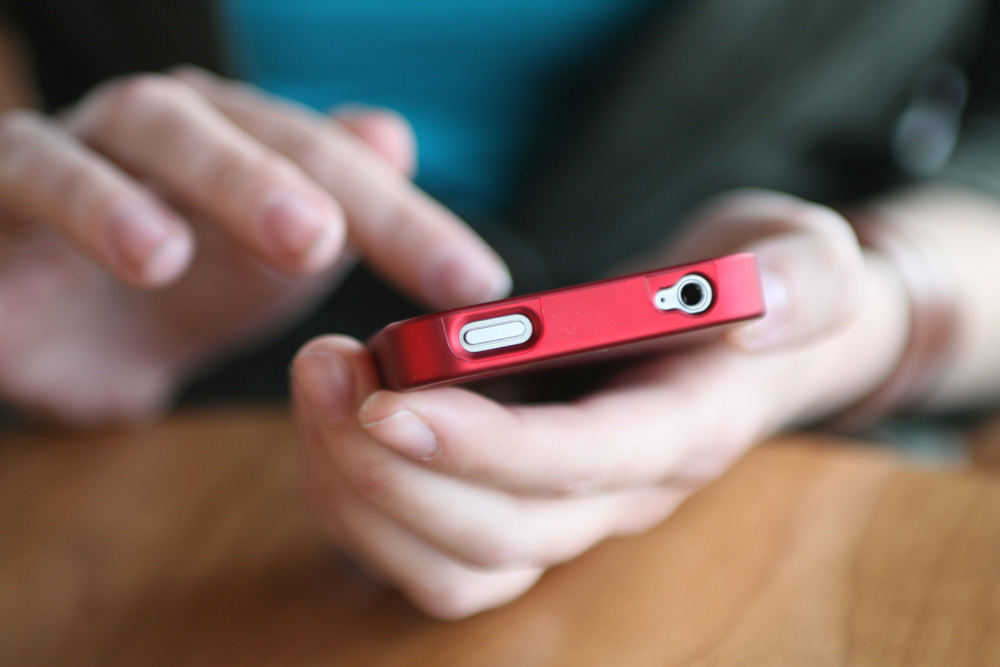
I was packing my bag for another day, and the last thing I grabbed was my smart phone. I realized just how large it had grown when compared to my little flip phone I had years before, when texting was a new idea and having a camera that even took grainy pictures enclosed in the phone was a novel thing. I miss those days sometimes. My phone was simple, and it fit handily into my pocket. Now, my smart phone goes into my bag—or, when I’m walking in the field, precariously into the back pocket of my jeans—and I check regularly to make sure it’s still there.
But when did things get so complicated? I can use my phone for almost anything now. Want music—a certain kind (you can get so specific as to request only 90’s country or instrumental dubstep)? There’s an app for that. I don’t have to go to a branch to deposit a check—my bank has an app for that. Puzzles where you’re guaranteed not to lose a piece? Word searches with over 2,000 levels? Counting calories or steps? Yup, there are apps for that, too.
We are so reliant on smart phones that it may become a “stupid crutch”. We don’t have to think hard or memorize or remember anything—our phone will tell us instead. Just “Google it”, or punch the problem into a custom made calculator that will translate or has equations for just about anything you can imagine. We don’t have to try anymore, or to understand the background behind a calculation; our phone will do it for us.
I walked into a WalMart a couple of days ago, and needed to go to customer service for a return. In my process of walking to the counter, the only people NOT staring at their phones were three older guys sitting on the bench (probably waiting for their wives!). A cluster of young women were so engrossed in their screens that I had to sidestep them in order to avoid a collision! This has become the norm rather than the exception.
It might be a generational thing, and it may not. While my 15 year old son admittedly gets overly involved in his video games, he’s not so attached to his phone as to feel he needs to have it attached to his side. There are times he sets it down on the table upstairs, and it stays there all day—even when he’s in his room in the basement. I know that when I call or text him, he may not answer right away. My husband, on the other hand, is never without his phone. When we watch a movie together, more often than not he’s on Facebook, too, and I have to tell him parts of the story he’s missed when he looks up from his phone to realize with a muddied expression that he’s missed parts of the plot. The minute after the church service was over last night, he was checking his text messages. He gets anxious when his daughter doesn’t instantly respond to his calls or texts.
The answer lies somewhere in the middle, I believe. While I, like my son, will set down my phone and walk away for hours, if not the whole weekend, I do like the immediacy of being able to easily look up a word on thesaurus.com or search for an actor to see what other movies they’ve been in. I make it a rule to only use my phone as a phone when I’m driving—no texts, I’ll answer you later! But I always have it in my back pocket when I’m scouting because it takes great photos, and I can search for an unknown insect or weed right there on the spot. It’s great for traveling when I need to find a route to a new town or consider avoiding ice or road construction. When I have a quick question for my daughter, or need her to call me at her convenience, I can drop her a text so I don’t disturb her until she’s available. It’s a great way to check in with someone quickly and quietly, it’s nice to be able to find my account balance when I’m paying bills at 10 PM and the bank is closed (did that check I mailed last week go through yet?).
Smart phones are wonderful devices and nice conveniences, but they threaten to become an addiction or obsession—as most good things tend to do. Technology can give us more detailed information more often and sooner than we could have a generation ago, which is great. But there is a balance needed. We need to be aware of our surroundings and understand basic concepts and have the ability to unplug enough to keep that human condition alive. Talking is understanding. There’s no replacement for a good old-fashioned book in your hands.
And there’s nothing like someone who will look you in the eye, smile, and shake your hand.
